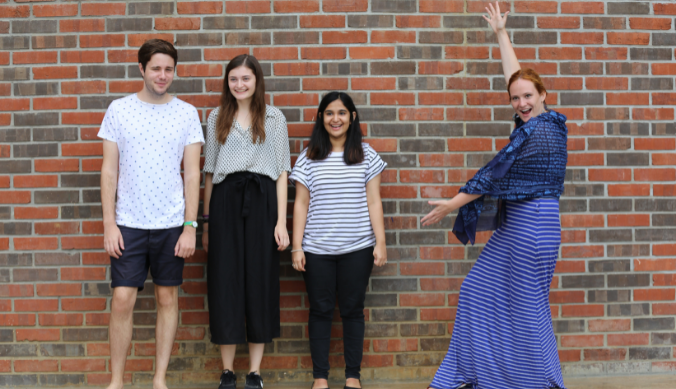Ashoka University’s Ph.D. Student Shreya Kundu awarded the prestigious Charles Wallace Trust Fellowship
Charles Wallace India Trust awarded Shreya with a prestigious research fellowship; she will be consulting archives in England and Scotland for her doctoral project
Shreya Kundu is a third year Ph.D. student in the Department of History, working under the supervision of Prof. Aparna Vaidik. She has been awarded by the Charles Wallace India Trust; CWIT Research Grant is given to selective Ph.D. students enrolled in Indian Universities for short-term research visits in the UK.
Shreya joined Ashoka University in 2019 as a part of the second batch of History Ph.D. cohort. She completed her M.A. and M.Phil from Jadavpur University, Kolkata in 2017 and 2019, respectively.
At Ashoka University, her thesis explores the everyday lives and experiences of the labouring children in the jute mills of Colonial Bengal from the late nineteenth to the early twentieth century. It examines the economic, affective, and spatial dimensions of the life of the proletarian children and the ways in which their lives were interlocked with global capital, colonial policy-making, and the spaces of the factory, working-class home and school. This research interweaves histories of labour, emotions and spaces with that of the history of childhood and, in doing that, it challenges the adult masculine discourses of labour and gender history that have invisibilised the history of the labouring children in India.
With the help of this grant, Shreya will be able to access various journals, Factory Commission Reports, Humanitarian Aid Collection, Legislative Reports, Committee Minutes and Missionaries’ Charity works which are not available in the Indian archives. These resource materials are spread across the archival collections at London and Birmingham in England and Manchester, Glasgow and Dundee in Scotland. Additionally, she will also be presenting a paper in the Children and Childhoods Conference at the University of Suffolk, UK.
This project begins from the historical juncture of colonial history. It addresses a wider knowledge gap in the scholarship on poor children in colonial India. Children as a segment of colonised population in colonial and national discourses have remained a focal point among the childhood historians in India. This research, however, portrays the ‘native’ children as interlocutors in the imperial, national and regional level discourses on Three C’s: Childhood, Capitalism and Colonialism which have remained an untouched area in the Indian scholarship on imperial childhood(s).
—
Prepared by Dr Yukti Arora








